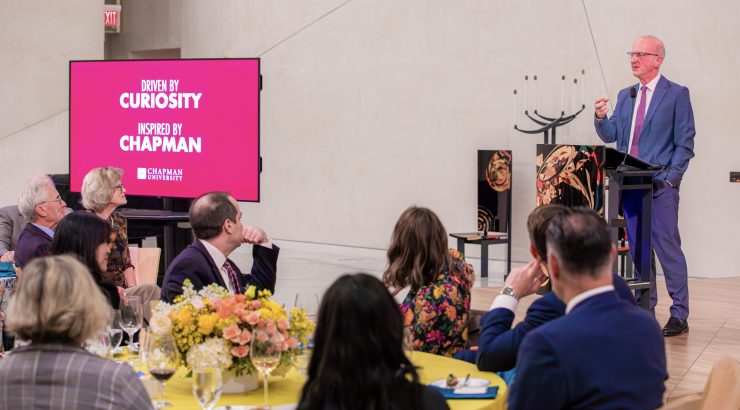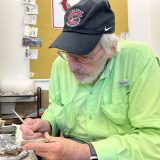What Can Philosophers and Scientists Learn from One Another? MPP conference explores interdisciplinary connections
February 21, 2024
What is the utility of studying philosophy? And what is the purpose of studying it alongside the sciences? These were the questions at the heart of a recent conference held at Schmid College. From January 30 to February 2, “Is Philosophy Useful for the Sciences, And/Or Vice Versa?” brought together philosophers and scientists alike to discuss the applicability of philosophy to scientific fields.
The conference was convened in celebration of the first year of the Math, Philosophy and Physics (MPP) doctoral program, led by program director and Kennedy Chair in Philosophy Marco Panza. Co-leading this conference was Thomas Pradeu, Senior Investigator in Philosophy of Science at CNRS and the University of Bordeaux, and a Presidential Fellow at Chapman.
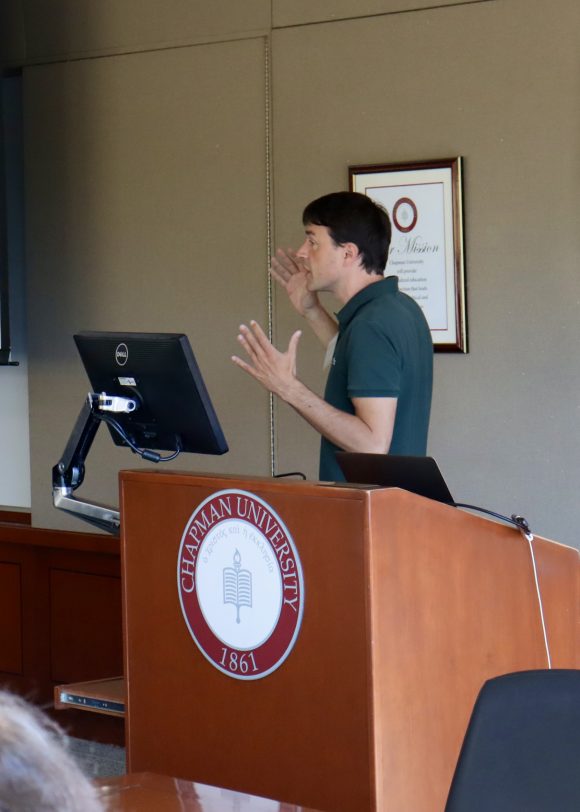
Thomas Pradeu of CNRS welcomed attendees and introduced the purpose of the conference on January 30.
The week included presentations from two dozen scholars, hailing from 16 institutions across five different countries. Nearly ten distinct disciplines were represented, from statistics to microbiology to (naturally) philosophy.
“The importance of philosophy for science is often professed,” said Panza, “But in most cases this remains a principled declaration.” The conference’s aim was to encourage detailed exploration into the matter, and to convene scholars across disciplines “to reflect on the effective role of philosophy in scientific practice.”
“This is why it was crucial for this conference to host world-leading scientists, representing a diversity of disciplines from biology to physics, mathematics, and the social sciences,” added Pradeu. “These scientists are in the best possible position to determine the extent to which philosophy or philosophers have played a useful role in actual scientific practice.”
Robert Knight, founding Director of the Center for Microbiome Innovation at UC San Diego, presented a talk entitled “The Human Microbiome and its Implications for Philosophy.”
Also discussing microbiology was Margaret McFall-Ngai, Faculty Associate in Biology and Biological Engineering at Caltech, with the talk “The Consequences of Living in a Microbial World.”
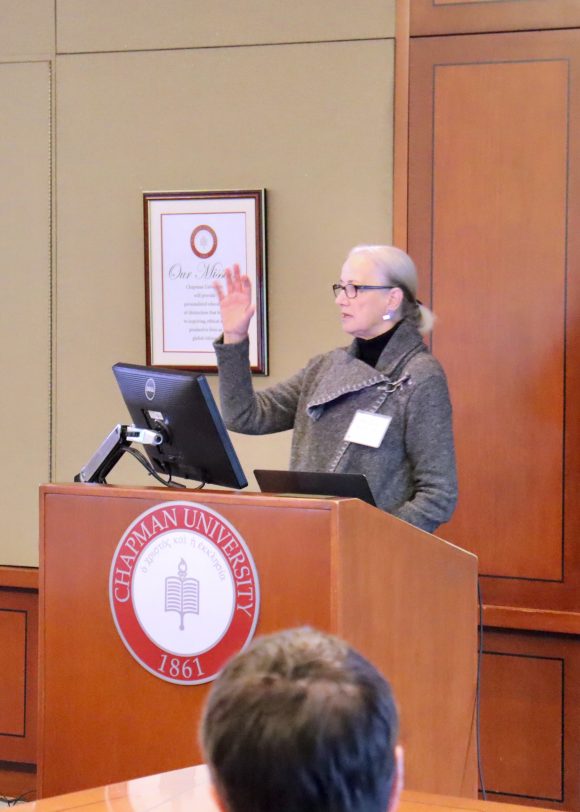
Margaret McFall-Ngai of Caltech delivered a talk entitled “The Consequences of Living in a Microbial World.”
In the numerical realm, Professor of Mathematics at the University of Oxford Damian Rössler presented “Is Philosophy Useful for Mathematics and/or Vice Versa?,” while CNRS’ Karine Chemla presented “The Entanglement of Philosophical and Mathematical Reflections in Poncelet’s Introduction of Ideal Elements in Mathematics.”
Presentations relating to the human mind included “Philosophy and Neuroscience in the Study of Conscious Perception” from Chapman’s Aaron Schurger and “The Essential Role of Philosophy in Cognitive Neuroscience and Psychology” from Caltech’s Ralph Adolphs.
Recordings of many of the conference’s talks can be found on Schmid’s YouTube channel.
“Chapman has a strong history of interdisciplinary research,” said Michael Ibba, Dean of Schmid College. “In fact, our president is both a mathematician and a philosopher,” he noted of President Daniele C. Struppa.
“Philosophy has relevance across many areas of STEM, and exploring that connection leads to deeper insights for both philosophical and scientific inquiry.”
Dean Ibba discussed this interdisciplinary connection, and the MPP program specifically, in a recent episode of the Inside Higher Ed podcast.
“Philosophy is a reflection of the basic conceptual structures we employ to describe the world and to understand it,” added Panza. “Thinking philosophically means to put these structures in question and to look for more suitable alternatives. This is just what scientific innovation requires.”
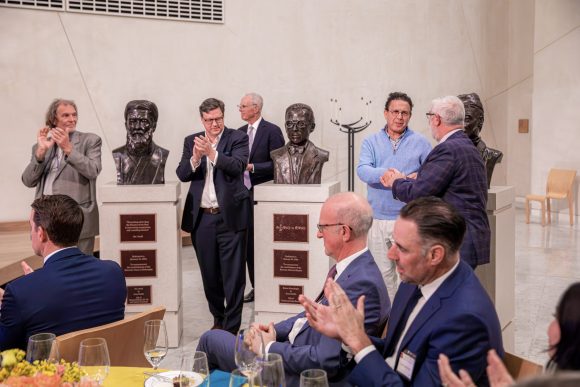
During a dinner on January 31, three Schmid professors were surprised with endowed chairs in the MPP program.
